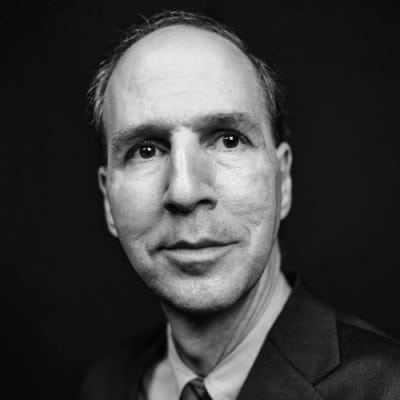Steven Goodman has been with Hitachi Consulting from the beginning. He was a senior counsel when Hitachi, a major multinational holding company based in Tokyo, bought Grant Thornton LLP fifteen years ago. He came over to the new consulting business as the only lawyer for 450 employees. Today, Hitachi Consulting is a global IT service and management consulting firm with 6,500 employees across twenty-six countries. Goodman, Hitachi’s executive vice president and chief legal officer, now oversees a team of lawyers covering legal, risk management, and corporate governance issues worldwide.

Hitachi Consulting divided itself into three global geographic regions—the Americas; Asia Pacific and Europe; and the Middle East and Africa.“The legal systems and the commercial practices that underlie those legal systems are very different in various parts of the world,” Goodman says. “Professionally, that is very satisfying.”
Goodman estimates that he spends 60-70 percent of his time on international matters, either traveling or through videoconferences across the world. “The first few years we were only in the US, and over time you start thinking you’ve seen it all. But then we started expanding to other countries—it was like starting over again,” he says. “Learning about legal systems in various countries, all of which were different to some degree, keeps it very interesting.”
For example, the United States has a whistle-blower policy that allows employees to anonymously report fraud or other issues in their workplace to protect them from retribution. However, Goodman soon learned that the issue is handled differently in Europe, where it is against the law to allow whistle-blowers to remain anonymous.
As a result of this realization, Goodman and his team created a global whistle-blower policy. It provided country-specific addenda for each European country where Hitachi Consulting operates. “We had to look at how whistle-blower hotlines could operate so we weren’t asking or requiring our employees in those countries to do something that was impermissible,” he says.
Much of what Goodman does on a daily basis requires juggling different needs, but with time he says he has learned how to make striking a balance a little easier. “There’s always an element of balance—how to balance the needs and desires and direction of the business with the need for risk management and to protect the interests of the company from a legal standpoint,” Goodman says. “My legal team is here to be enablers for the business, and we want to find a way to say yes. Too often, in-house lawyers are perceived as being the naysayers.”
Goodman puts a strong focus on what exactly each member of his team is going to do. For example, one lawyer is completely dedicated to employment matters. “That makes perfect sense because a consulting firm, like a law firm, is very much a people-based business. We don’t have factories or plants or hard products rolling down an assembly line,” Goodman says. “Our assets are our people, and there is a lot that goes into the care and feeding of that and how we address employment matters.”
Goodman tries to empower people to be as autonomous as possible, because he says it’s not only a benefit to the company, but to each of them individually as well. Goodman is a huge proponent of training and has created several programs for the company to get as much, and as thorough, training as possible on any of the potentially sticky legal issues they may face on the job.
Additionally, last year Goodman and his team completely revamped the company’s code of conduct on ethics and introduced it in the fall. Hitachi already had a code of conduct, but since several of its holding companies are manufacturers, the hypothetical situations posed in the training did not resonate as well with a consulting business. “We’ve created it so it is entirely geared to the kind of business we conduct,” he says.
Goodman has also developed and delivered trainings on antiharassment, antidiscrimination, best practices for client interactions, and how to handle intellectual property, confidentiality, and bribery. Antibribery training ensures Hitachi consultants understand exactly what bribery is, and how it can look different than they might think. “When you ask people what bribery is, someone will raise their hand and say it’s two people meeting in dark garage exchanging money,” Goodman says. “But then I ask the question again, and there’s silence. We really want everybody to have to think hard. These are hard questions, and there are no easy answers.”
That training initiative also needed to be tailored to different countries because of new antibribery laws that were passed in the United Kingdom a few years ago that required even more strict regulations than in the United States.
“It doesn’t have to be money. It could be a favor, a gift, entertainment, meals,” says Goodman, explaining that bribery can take less obvious forms. “I’m not trying to make everybody a lawyer, I just want to raise their consciousness so that they are aware of these issues, and if they are faced with a situation a switch will turn in their head, and they will remember what we said and what to do.”
Training is an essential part of ensuring Hitachi’s business is conducted the right way. Taking proactive measures reinforces that the company will succeed not only because it delivers great services to clients, but also by the way it goes about doing that business with ethics, according to Goodman.
Hitachi also strengthens its best practices by focusing more on social innovation. That means the company prioritizes using its technologies and talent to tackle large-scale, real-world problems, from water purification to efficient mining techniques to infrastructure issues to energy savings.
All Hitachi companies are coalescing around the idea of social innovation, but Goodman has been particularly involved because of his role in drawing up the legal contracts for the projects and the terms of several companies working together.
“We are one Hitachi, so we are looking at how do we, as a legal team and the overall Hitachi Consulting and Hitachi Limited, work together to create these solutions that have a very large purpose of improving the quality of life around us,” Goodman says. “Not only does it make a lot of sense for a company like Hitachi to take the lead on this, but on a personal level, this type of thing is very satisfying. It’s very meaningful, so I’m just happy to be a part of it in some way.”
The constantly changing legal landscape and the new developments in using Hitachi’s power for good means Goodman is feeling even more fulfilled in his leadership role.
“Over the past fifteen years it has always been exciting, but I think it’s even more so now because the pace of change has quickened, and it impacts what we do day to day,” Goodman says. “Also, with the social innovation component, Hitachi is capturing something that is important to all of us and important globally. That marriage of the personal and professional makes it even more exciting than it ever has been.”

